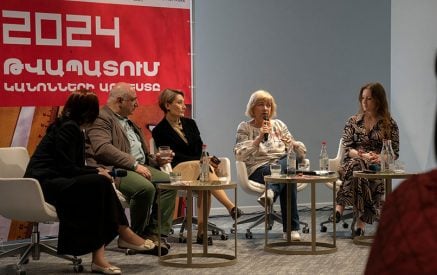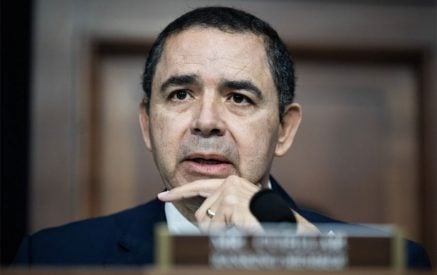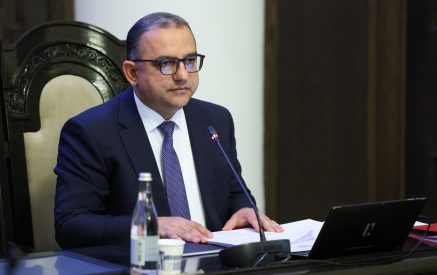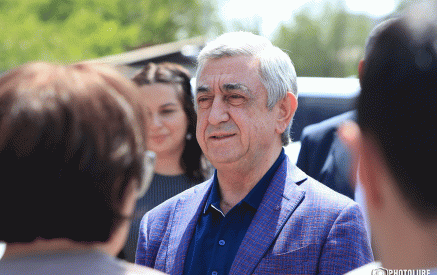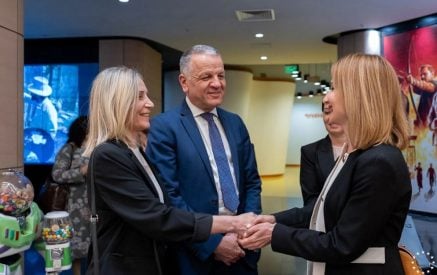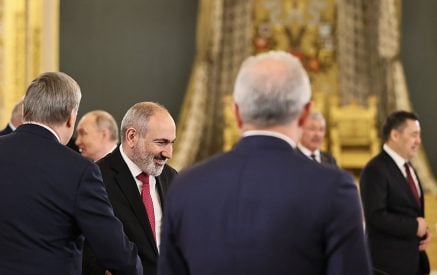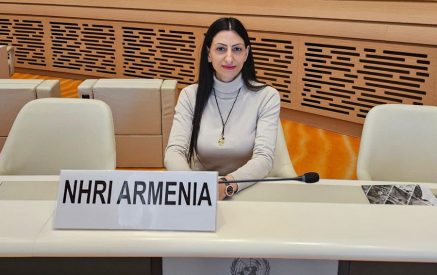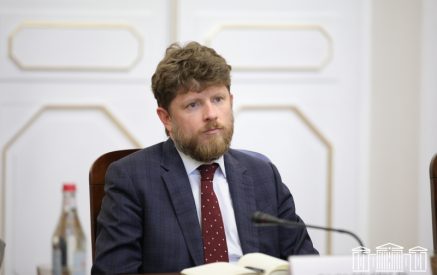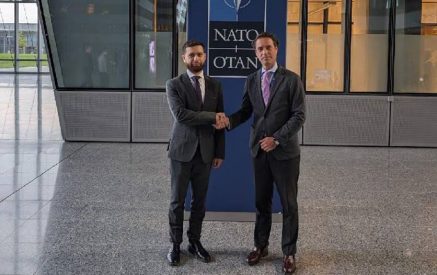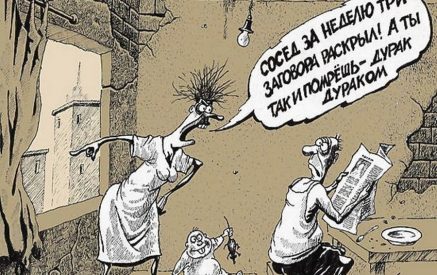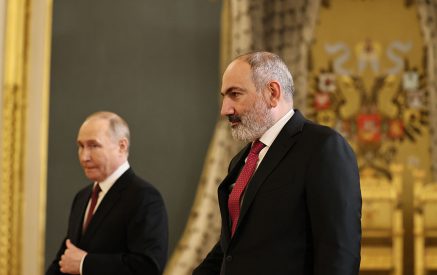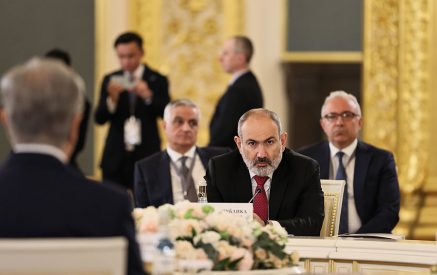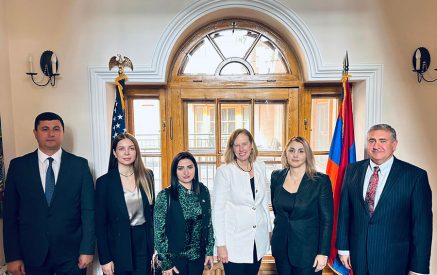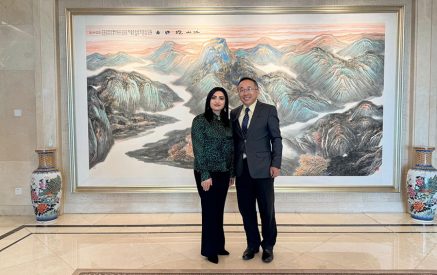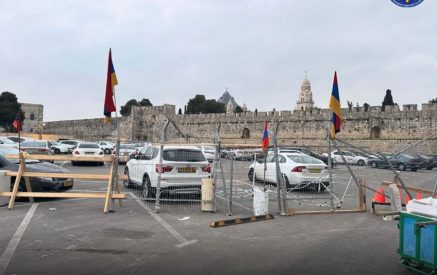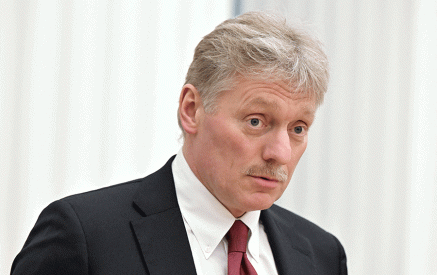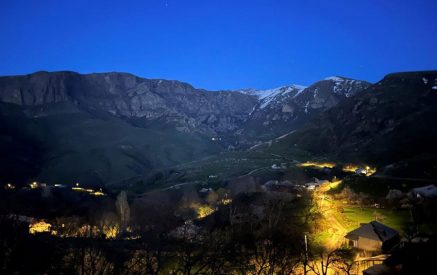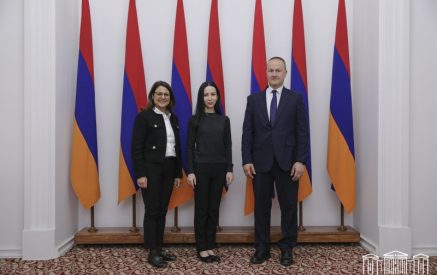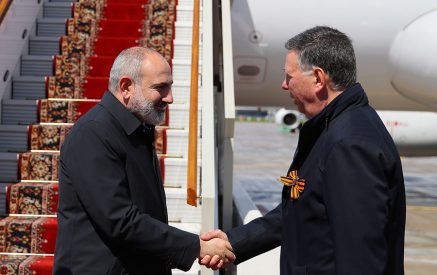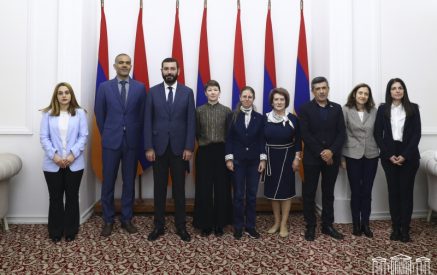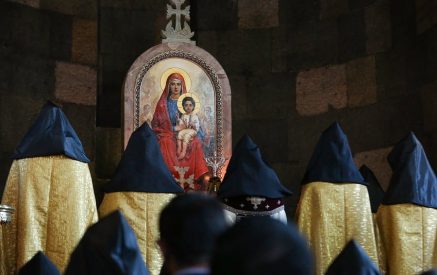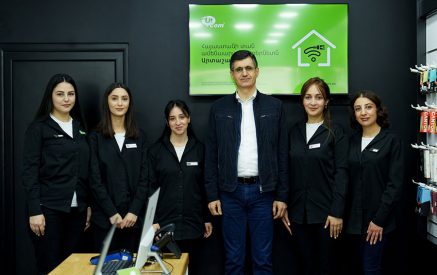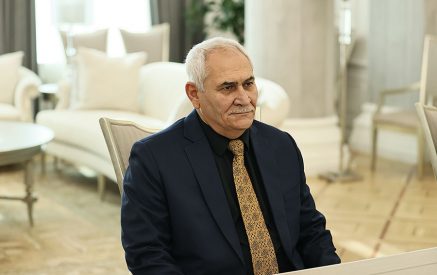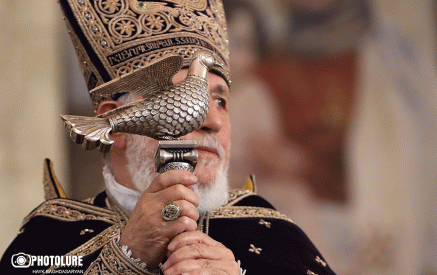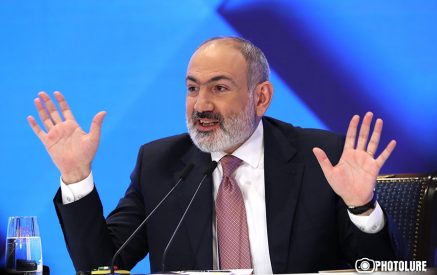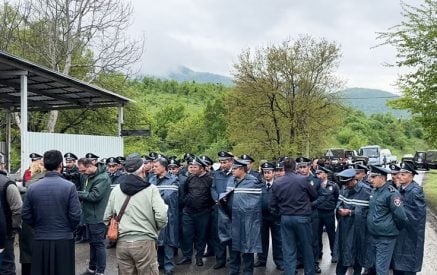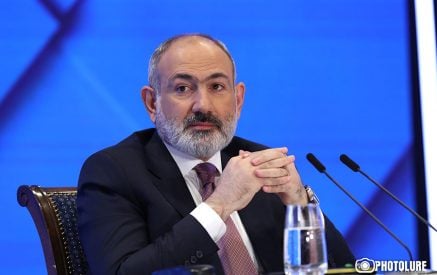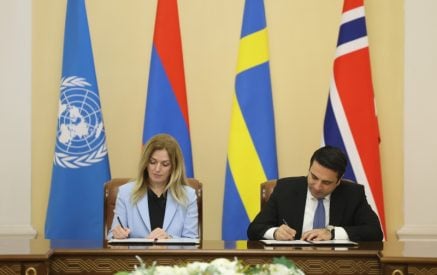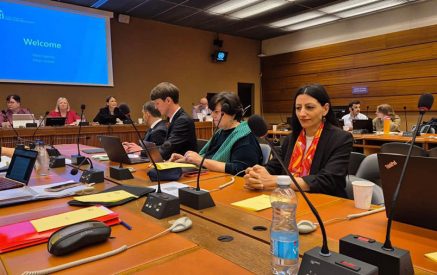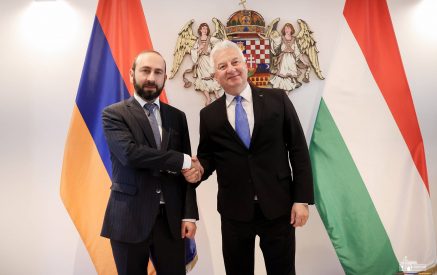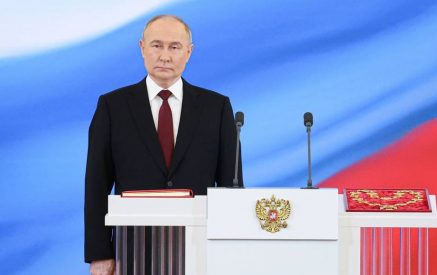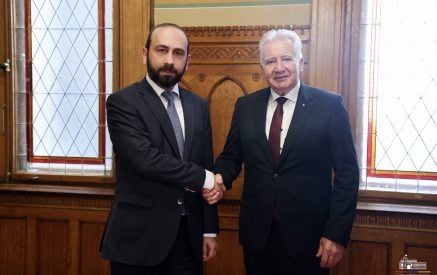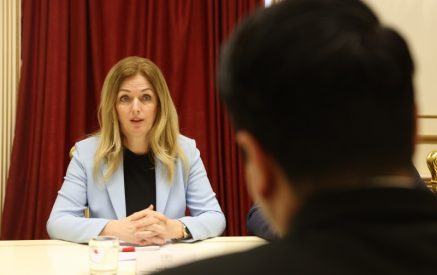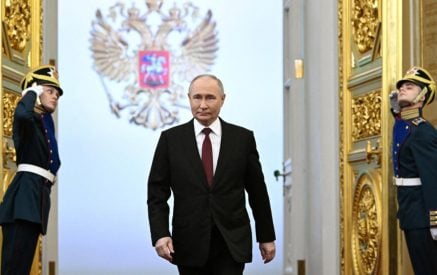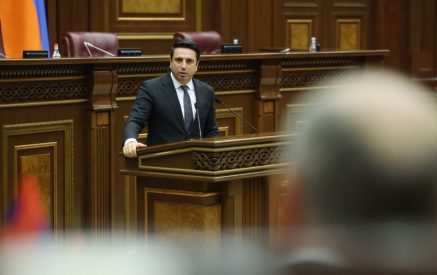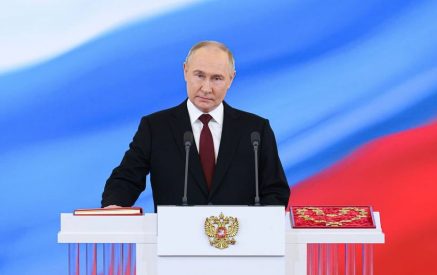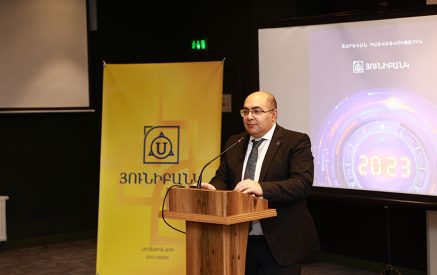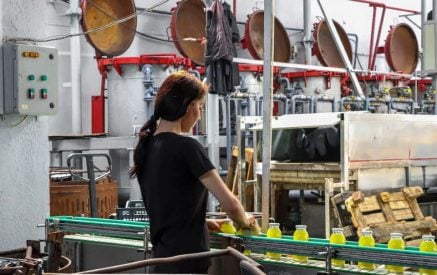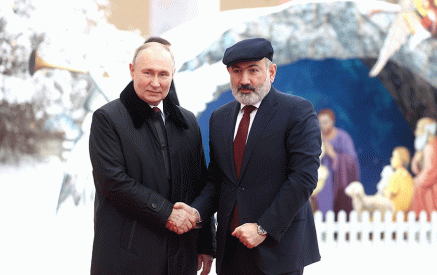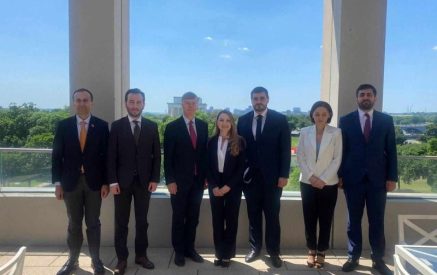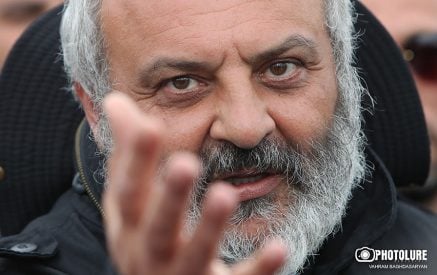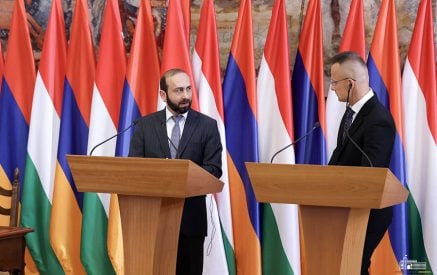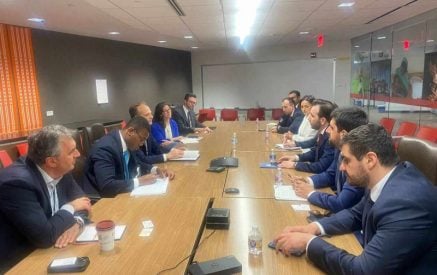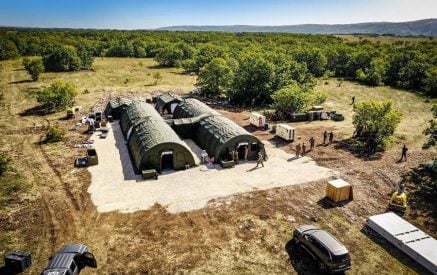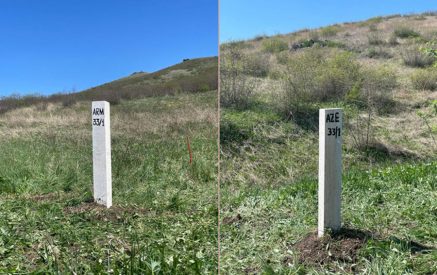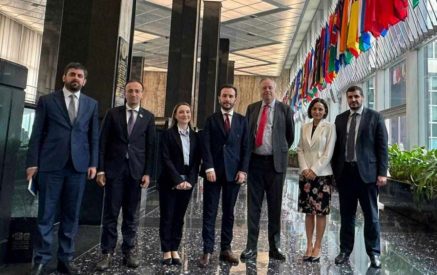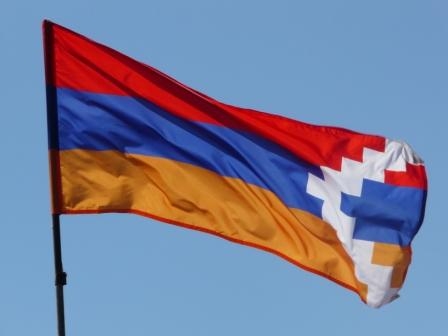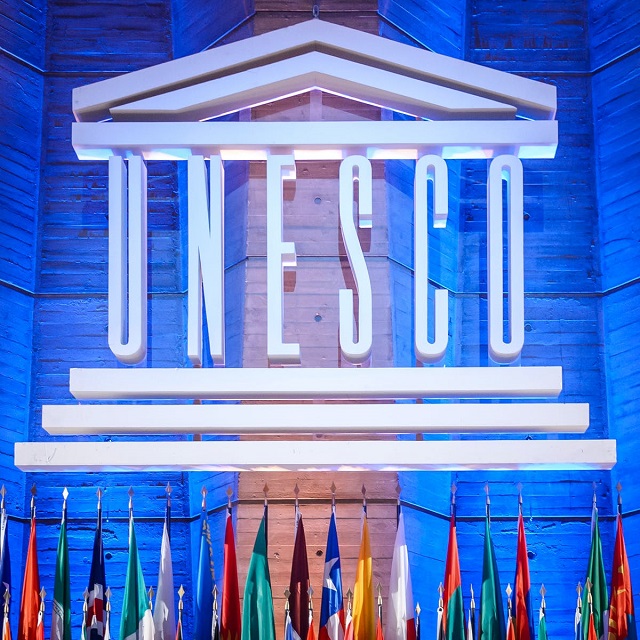TO: Alice Ndreitu, Special Adviser on the Prevention of Genocide to United Nations Secretary General
In September 2020, the South Caucasus has plunged into a major security crisis due to the large-scale military attack launched by Azerbaijan in Nagorno-Karabakh. The conflict, which is now known as the 44-Day War, has resulted in many deaths, the depopulation of multiple towns and villages, and an alarming humanitarian crisis on the ground. Two years have passed since the war, but major security issues have not been resolved yet, the fundamental rights of many people remain violated, and there is a significant and growing threat of new clashes and atrocities.
It is especially alarming that there is a probable scenario of ethnic cleansing of Nagorno-Karabakh of its indigenous Armenian population. The extremely hateful and belligerent rhetoric of the Azerbaijani government, the revisionist and racialized narratives that deny Armenians of historic agency, the destruction of Armenian monuments and appropriation of cultural heritage, the exceptional cruelty by Azerbaijani armed forces, the continuous threats to use violence and acts of intimidation are characteristic of genocidal atrocities.[1] The scenario of ethnic cleansing could become a reality if the crimes committed by the Azerbaijani side remain unaddressed and no effective pressure is put on official Baku to abstain from the use of violence.
Read also
Impunity and the Imminent Threat of Ethnic Cleansing
The current state of affairs and the fact that Azerbaijan does not shy away from using violence is highly concerning and increases the probability of the regime in Baku using coercion and force for establishing full control over Nagorno-Karabakh. The Azerbaijani side simply wants the land without its Armenian population. The regime in Baku takes deliberate measures to erase any physical and cultural presence of Armenians in their native communities in Nagorno-Karabakh and beyond.
Azerbaijan continues violating human rights and creates difficult living conditions for people in the area.[27] It uses a wide range of tactics in order to deprive Armenians in Nagorno-Karabakh of basic living conditions, access to livelihoods and their inalienable rights. One of the striking examples was cutting the gas supply and leaving the whole population of the region without heating in subzero temperatures for two weeks.[28] In addition, Azerbaijani forces often use intimidation tactics to force local Armenians to flee their homes.[29] One way of achieving this objective is through the occasional use of force. For instance, in March 2022, the Azerbaijani side attacked areas under the control of the Russian peacekeeping mission, leading to the ethnic cleansing of four villages of their Armenian population.[30] Since 2020, Azerbaijani servicemen regularly shoot at Armenian civilians engaged in subsidence farming while they are harvesting.
The rhetoric in the context of which these measures are taken is especially disturbing. During the 44-day war in 2020, President of Azerbaijan Aliyev referred to Armenians as “animals,” including claiming that “We are now driving them out as if we were chasing dogs,”[31] an insult which subsequently gained popularity in Azerbaijan. On October 22, 2020, Azerbaijan announced production of new UAVs and named them ‘ItiQovan’ which in Azerbaijani means ‘dog chaser.’[32] In December 2020, right after the 44-Day War, the Ministry of Transport, Communication and High Technologies of Azerbaijan issued ‘Azerbaijan 2020’ postage stamps, which showed how a man in a medical uniform is disinfecting the Nagorno-Karabakh area on Azerbaijan’s map, basically comparing Armenians to “virus, and depicting ethnic-cleansing of the territory.”[33]
Two years have passed since the 44-Day War, but this attitude has not changed. On November 8, 2022, the President of Azerbaijan made explicit threats to use force against the people of Nagorno-Karabakh and Armenia, stating that if they did not meet the demands of the Azerbaijani side, “they will see our fist again.”[34] He also threatened to close the Lachin corridor, the only lifeline connecting Nagorno-Karabakh to Armenia.[35] Finally, he said that the newly established Azerbaijani bases allow them to see Armenian cities of Sisian, Kapan, Goris, and Jermuk.[36] It is a clear threat to use force against the civilian population in Armenia proper. As regards the opinion of the indigenous people of Nagorno-Karabakh, in October 2022, Aliyev stated that if Armenians did not want to become citizens of Azerbaijan they could leave.[37] Put together, the actions and rhetoric paint a holistic picture of the dangerous situation that Armenians in Nagorno-Karabakh and Armenia proper face.
Despite the declarative statements on seeking peace, the Azerbaijani side continues its hateful propaganda. Antagonism against Armenians is taught as part of patriotic education at kindergartens and schools, promoting and instilling hatred, revenge, and death towards “the enemy.” As state by school staff, “Armenians are our enemies, children should know that.”[38] For instance, on September 24, 2022, a video was published by the Head of Press Office of the Council of State Support to NGOs adjunct to the President of Azerbaijan, showing schoolchildren standing in a row like soldiers and repeating the words supposedly spoken by the teacher. In the video, the children identify themselves as soldiers assuring their service to the motherland and loyalty to the people and “hatred to the enemy.” The video description and the flag signs (Armenian flag and expression “Düşmənə nifrət!” translated into English as “Hatred towards the Enemy”) used in it clearly show that the hatred is directed against Armenia and Armenians.[39]
The highly concerning nature of these developments have been observed by various international institutions. On August 30, 2022, the UN Committee on Elimination of All Forms of Racial Discrimination (hereinafter – CERD) on its Concluding Observations on Azerbaijan raised its deep concern about the “incitement to racial hatred and the propagation of racist stereotypes against persons of Armenian national or ethnic origin, including on the Internet and social media, as well as by public figures and government officials, and the lack of detailed information on investigations, prosecutions, convictions and sanctions for such act.”[40]
One of the major factors that emboldens the Azerbaijani side to act in this manner is the unequivocal support from Turkey. Alongside its denial of the Armenian Genocide, Ankara is actively involved in boosting Azerbaijan’s own genocidal activities. Its destructive role in the Nagorno-Karabakh conflict has been recognized by many international actors and documented by ECtHR, which “calls on all States directly or indirectly involved in the conflict, including Turkey, to refrain from actions that contribute to breaches of the Convention rights of civilians, and to respect their obligations under the Convention.”[41] While the Armenian side has shown a preparedness to restore relations with Turkey without preconditions, the Erdogan government ties this matter to the relations with Azerbaijan and puts pressure on Yerevan to succumb to the maximalist demands of the regime in Baku.[42] In this regard, Ankara’s position in relation to this dispute is alarming, as it encourages Azerbaijan to stay on its “tested” path of using violence.
This crisis is also exacerbated by the inability of international organizations, such as UN institutions, to provide assistance in solving the humanitarian issues in Nagorno-Karabakh. The Azerbaijani government does not grant access to these outside agencies, making it impossible for aid to reach native Armenians living there.[43] In addition, Azerbaijan has launched a campaign of either destroying or appropriating Armenian cultural monuments.[44] The hostile narratives that dehumanize Armenians fuel acts of vandalism and normalize Baku’s genocidal behavior. It is alarming how the official Baku tries to seize territory and wipe any trace of its indigenous population from it. Baku’s refusal to use the term “Nagorno-Karabakh” (widely in use internationally and even in the November 9, 2020 statement signed by President Aliyev himself) is yet another attempt to deprive Armenians living there of any agency.
Under these circumstances, Armenians in Nagorno-Karabakh do not imagine their life under Azerbaijani rule. After all, not a single Armenian has remained in the territories that were taken by Azerbaijan during the 44-Day War. Those who were too old, ill, or otherwise refused to leave in time, were either executed or detained. Thus, the risk of ethnic cleansing, either through further violence and threats, or worse – mass atrocities – is quite real. The regime in Baku openly states that it is prepared to use violence again if its demands are not met. For instance, on November 8, 2022, President Ilham Aliyev made explicit threats about new attacks if their demands were not met,[45] disregarding the recent joint announcement with Armenia and Russia in Sochi, Russia, on having a peaceful resolution. The reluctance to condemn such acts and statements only emboldens Azerbaijan further. It is not surprising that Azerbaijan’s jingoistic rhetoric and war crimes did not go away after the 2020 war.
What Can Be Done
First of all, it is critical that these events receive proper attention from international organizations, including the UN, and are characterized accordingly. The large-scale attack against the sovereign territory of Armenia was a clear act of aggression in violation of the UN Charter, and Azerbaijan continues to occupy territories in Eastern and Southern Armenia, creating significant livelihood challenges for the local population. And yet, many statements, including one from Secretary General Guterres stroke a neutral tone. This is unfortunate since, as we already described, this only emboldens the aggressor. The European Union’s civilian monitoring mission, which was deployed on October 20 and works on the territory of Armenia is a very welcome development. However, their mission is only for two months, and it doesn’t have enough staff on the ground. Moreover, Azerbaijan will likely disagree to prolong the mission, without considerable international pressure, yet it is crucial that such international mission remains in place as a mechanism to prevent further use of force. The UN could add its voice here, but also consider joining efforts with this mission. Stronger international presence and engagement is the only hope for peace, given the huge power imbalance between the two sides.
Furthermore, the risk of ethnic cleansing and gross human rights abuses against the Armenian population of Nagorno-Karabakh should receive much greater attention. It should be made clear to Baku that the world is watching and expects it will move away from its policy of hatred towards Armenians, abandon its ongoing use of force and intimidation, and begin direct negotiations with Nagorno-Karabakh, which ideally would be internationally mediated. There should also be pressure on Baku to allow for humanitarian access (at the moment only ICRC has access), especially for the UN.
In closing, it should be noted that while this may seem like a small-scale conflict, it sets a dangerous precedent of normalizing the use of force and weakening international frameworks and institutions designed to resolve and prevent conflicts, including the UN. It also risks undoing all the gains Armenia has made in democratizing itself, led by authoritarian regimes in the region, and chiefly by Azerbaijan, Russia, and Turkey.


